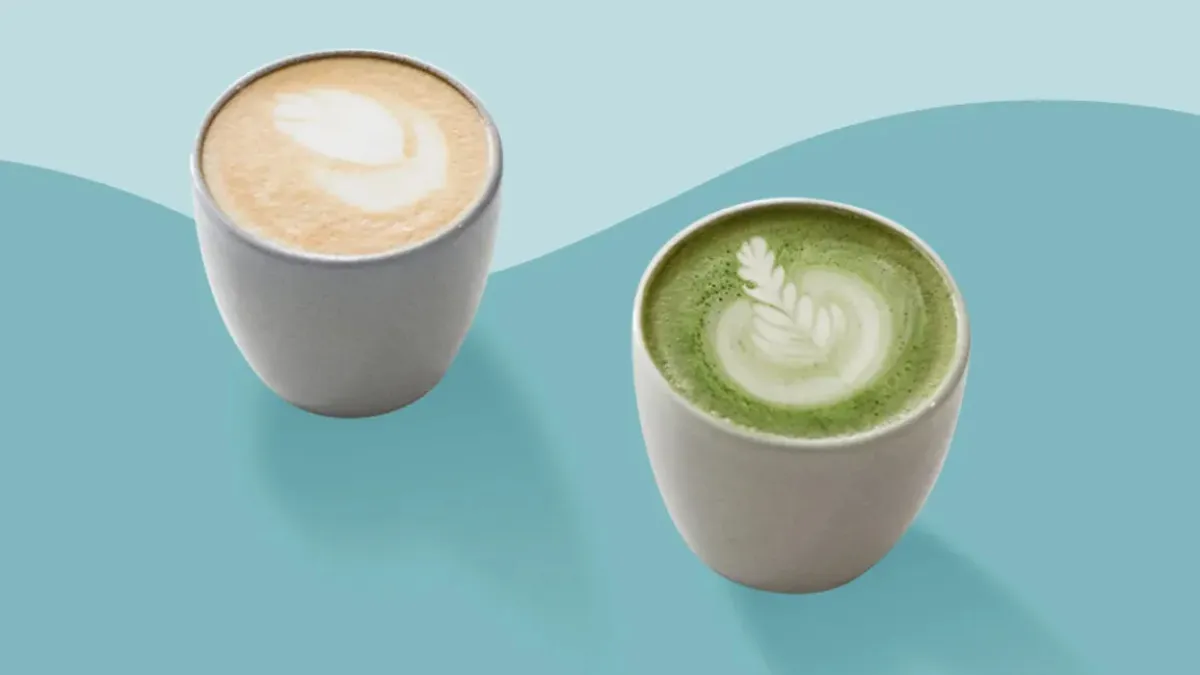The age-old debate between matcha and coffee enthusiasts has become a staple in discussions about morning rituals and caffeinated pick-me-ups. Both beverages offer unique flavors, aromas, and potential health benefits, but the choice ultimately boils down to personal preference and individual health considerations. In this article, we’ll explore the characteristics, benefits, and potential drawbacks of matcha and coffee, helping you make an informed decision based on your taste buds and lifestyle.
Matcha: The Green Elixir
Characteristics:
- Origin: Matcha is a finely ground powder made from shade-grown green tea leaves, predominantly from Japan.
- Preparation: Traditionally, matcha is whisked into hot water, creating a frothy, vibrant green tea.
- Flavor Profile: Matcha boasts a unique combination of umami, sweetness, and a slightly bitter undertone.
Health Benefits:
- Rich in Antioxidants: Matcha is high in catechins, particularly epigallocatechin gallate (EGCG), known for its potent antioxidant properties.
- Caffeine with L-Theanine: The caffeine in matcha is balanced by L-theanine, promoting a calm alertness without the jitters.
- Metabolism Boost: Some studies suggest that matcha may enhance metabolism and aid in weight management.
Drawbacks:
- Cost: High-quality matcha can be more expensive than traditional tea leaves.
- Acquired Taste: The distinct umami flavor may take some getting used to for those accustomed to milder teas.
Coffee: The Classic Energizer
Characteristics:
- Origin: Coffee is brewed from roasted coffee beans, sourced from various regions globally.
- Preparation: Coffee can be brewed through various methods, including espresso, drip brewing, French press, and more.
- Flavor Profile: Coffee’s flavor spectrum includes bitter, acidic, sweet, and nutty notes, influenced by the roast level and bean origin.
Health Benefits:
- Antioxidants: Coffee contains chlorogenic acids, providing antioxidant benefits.
- Mental Alertness: Caffeine in coffee is a well-known stimulant, enhancing mental alertness and focus.
- Reduced Risk of Certain Diseases: Some studies suggest that coffee consumption may be associated with a decreased risk of certain diseases, such as Parkinson’s and Alzheimer’s.
Drawbacks:
- Acidity and Digestive Sensitivity: Coffee’s acidity can be harsh for some, leading to digestive discomfort.
- Caffeine Sensitivity: Excessive coffee consumption can lead to jitteriness, insomnia, and increased heart rate in sensitive individuals.
ALSO READ: Exploring the health benefits of ‘Matcha’
Which One is Better? The Verdict:
The choice between matcha and coffee depends on personal preferences, health considerations, and the desired effects:
Choose Matcha If:
- You appreciate a unique, umami-rich flavor.
- You seek a balanced energy boost without the coffee jitters.
- Antioxidant-rich beverages are a priority.
Choose Coffee If:
- You enjoy the diverse flavor profiles that different coffee beans and roasts offer.
- A quick and convenient energy boost is your preference.
- You tolerate acidity well and don’t mind the potential for digestive sensitivity.
ALSO READ: A guide to making delicious Matcha Coffee at home!
In the matcha vs. coffee showdown, there is no clear winner – it’s all about personal taste and lifestyle choices. Some may find solace in the ritualistic preparation of matcha, while others crave the robust flavor and immediate kick of coffee. The best approach might be to embrace both beverages at different times, recognizing that each has its unique set of characteristics and potential health benefits. Whether you’re Team Matcha or Team Coffee, savoring the nuances of these beloved beverages is a journey worth taking.


